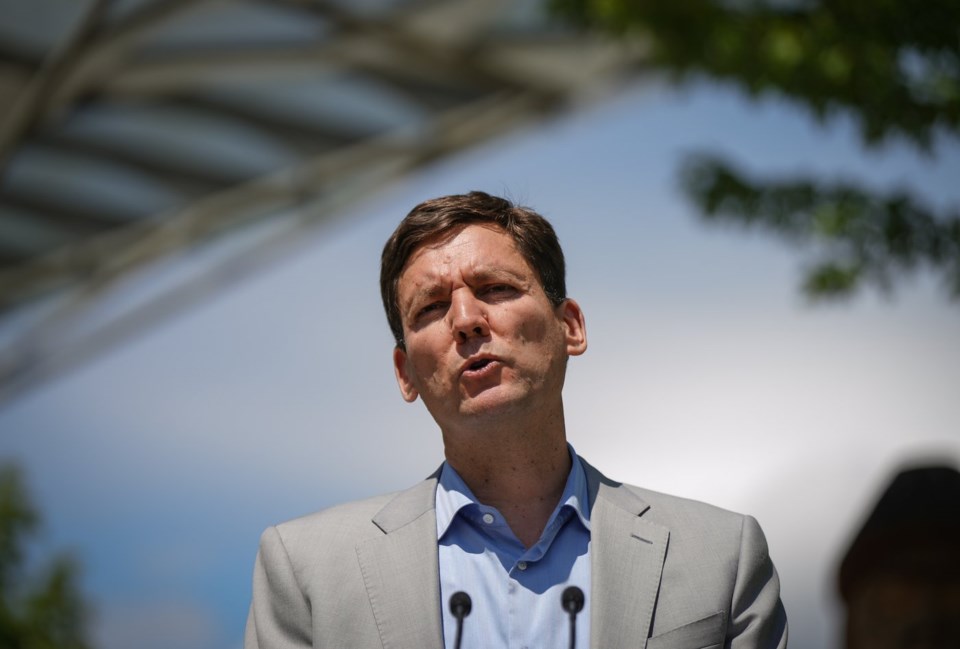VANCOUVER — Cellphone use will be restricted in all British Columbia school districts when pupils return next week, as the province becomes the latest to curtail the use of the devices by students.
Premier David Eby says all districts now have policies in place to ban phone use "bell-to-bell," in line with a government directive announced in April.
Eby said Tuesday that how the rules are implemented will vary between school boards "but the bottom line is that the phones are not going to be out in the classroom."
"They're not going to be out in the hallways, not going to be out in the schoolyards. It's a bell-to-bell restriction on cellphones, recognizing that there are some kids with disabilities that may require access to a phone for an accommodation of some kind," he said.
The premier said the aim of the ban is to make sure students can learn and develop relationships without a phone, and remove the peer pressure that can come when students have phones.
"We know that beyond just the impact on socialization, kids having access to apps with algorithms that feed them constantly, more enticing, more extreme content has an impact on their health," he said.
Manitoba, Saskatchewan, Alberta, Quebec, Ontario and Nova Scotia all either have, or are in the process of creating, rules that restrict the use of cellphones by students.
A statement from the BC Teachers' Federation said that while teachers are happy to see attention on classroom needs, "there are much higher priorities than cellphones."
The federation, which represents 50,000 teachers in the province, said B.C. is experiencing a staffing crisis across schools.
"Any efforts to improve learning conditions should be part of a robust plan for retention and recruitment strategies. With an election less than two months away, B.C. teachers and families hope to see every party campaign on platforms that prioritize public education," the statement said.
The province is also imposing "access zones" around schools allowing police to arrest or issue tickets to anyone found impeding access, disrupting educational activities, or attempting to intimidate an individual within 20 metres of school property.
The law was tabled in April, at a time when the premier said most of the protests involved demonstrators angry about the sexual orientation and gender identity education being taught in schools.
Eby said on Tuesday that B.C. has seen 20 protests that were disruptive to schools, including one case where adults were pounding on school windows and another where individual students and teachers were targeted and made to feel unsafe.
"We need to make sure that our schools are safe places to learn for kids, and we're doing that," he said.
The zones will be in effect on school days from 7 a.m. until 6 p.m., and during extracurricular school activities at all public and independent schools.
This report by The Canadian Press was first published Aug. 27, 2024
The Canadian Press

